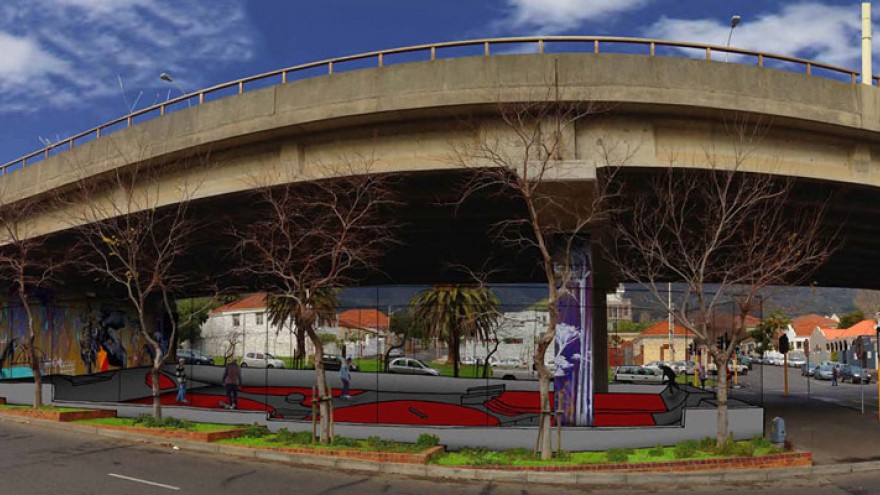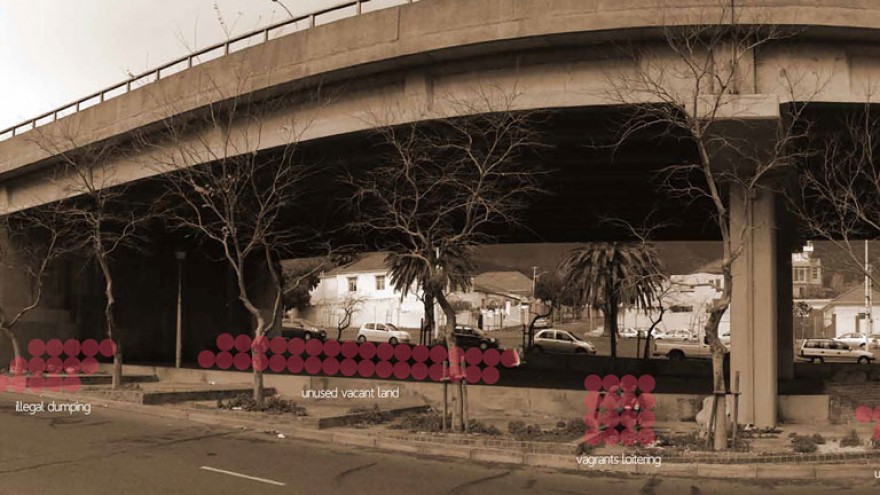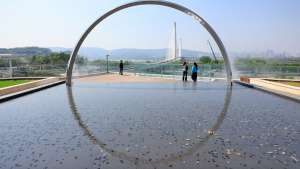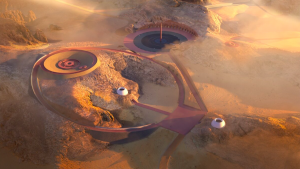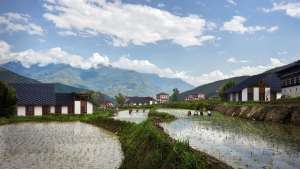From the Series
Building is set to start before mid-December on the construction of a brand new skate park after the City of Cape Town won an international design competition to turn a neglected part of a city into an interactive playscape.
The contractor, Nammic Engineering, has been appointed and the construction period will be six months. After completion City Parks will manage the project. The park, in Cape Town’s Gardens neighbourhood, will be fenced and access controlled during operating hours.
Clive Crofton, whose company Spyda Ramps designs and constructs skate parks, said there are six skate parks in Cape Town already – all of which he designed over the last three to four years.
The Gardens skate park will be the first one in the city centre.
The PLAYscapes competition called for "professional and student architects and designers from cities around the world to propose ideas which encouraged public interaction and turned redundant city spaces into fun creative places."
A multidisciplinary team led by the City of Cape Town submitted "Cape Town Gardens Skate Park". The aim is for the park to set a precedent for the use of other vacant spaces below Cape Town bridges and off-ramps – and across the country.
According to mayoral committee member for economic, environmental and spatial planning, Garreth Bloor, the decision to enter the PLAYscapes competition was motivated by the urban design branch at the City. "When we read the competition brief we realised we already had the ideal projects to submit that display the creative use of vacant space and create inspiring play environments for the people of Cape Town," he said.
"The project started as an initiative to transform a vacant public space into something that will benefit the community and also solve some of the issues that the site faced like vandalism, littering and various other anti-social behaviour. The concept was developed by the urban design branch which demonstrated the need for detail design and input from a specialist. We then appointed a structural engineer and skate park designer to help us take the project forward."
This was the first time the City entered this competition and it submitted two entries: the Gardens skate park and a playscape in Du Noon.
Of the existing skate parks in Cape Town, in Delft, Belhar, Kleinvlei, Scottsdene, Valhalla and Athlone, the last two were built this year.
The Valhalla one – at 4 300 square metres – is the first or second biggest skate park in Africa, Crofton said.
There are a few different ways to construct a skate park. Crofton’s brief from the City of Cape Town was to design a park that fitted in with the provided size and budget, and for it to be designed on an international level.
The Gardens skate park is designed to have a brick foundation and brick retaining walls which will result in a different look and finish but will have the same functionality as the more traditional concrete-all-over parks (in the U.S., skate parks tend to be all-concrete as concrete is much more inexpensive there). It will cover an area of 480 square metres and has been designed in the plaza style with stairs and handrails and marble ledges ("the best surface to grind on when you’re down the ledge," he said). It features skate park elements, too, such as quarter pipes, banks, rails and a pipe jam, which is a pipe stuck in the ground – the only skate park in SA to feature that element.
With a plaza you can really go all out, Crofton said.
David Cole, one of the founding partners of Building Trust International, the registered UK charity that ran the competition, said the skate park had "an incredible level of thought and community involvement".
Co-founder Louise Cole said the aim of the competition was to show creatively how cities can be made fun places and to seek out exciting new ways to get people to interact with the city on a different level.
"Regeneration of cities should not just be about increasing value and foot fall but should capture people’s imaginations making them want to get involved and experiment with new things," she said.
There were more than 500 registered entrants. Other international entries were from London, NYC, Bruxelles, Madrid, Mumbai, Philadelphia, Jerusalem and Melbourne.
The jury included representatives from Building Trust International, Project for Public Spaces, BMW Guggenheim Lab, Landscape Architects Network, 3Space, Neon Stash, Land8, and academics and professionals in the fields of architecture and landscape design.
Building Trust International is a non-profit charity founded in 2010. It seeks to promote design that tackles real world issues and has a positive effect on people, wildlife and the environment.

